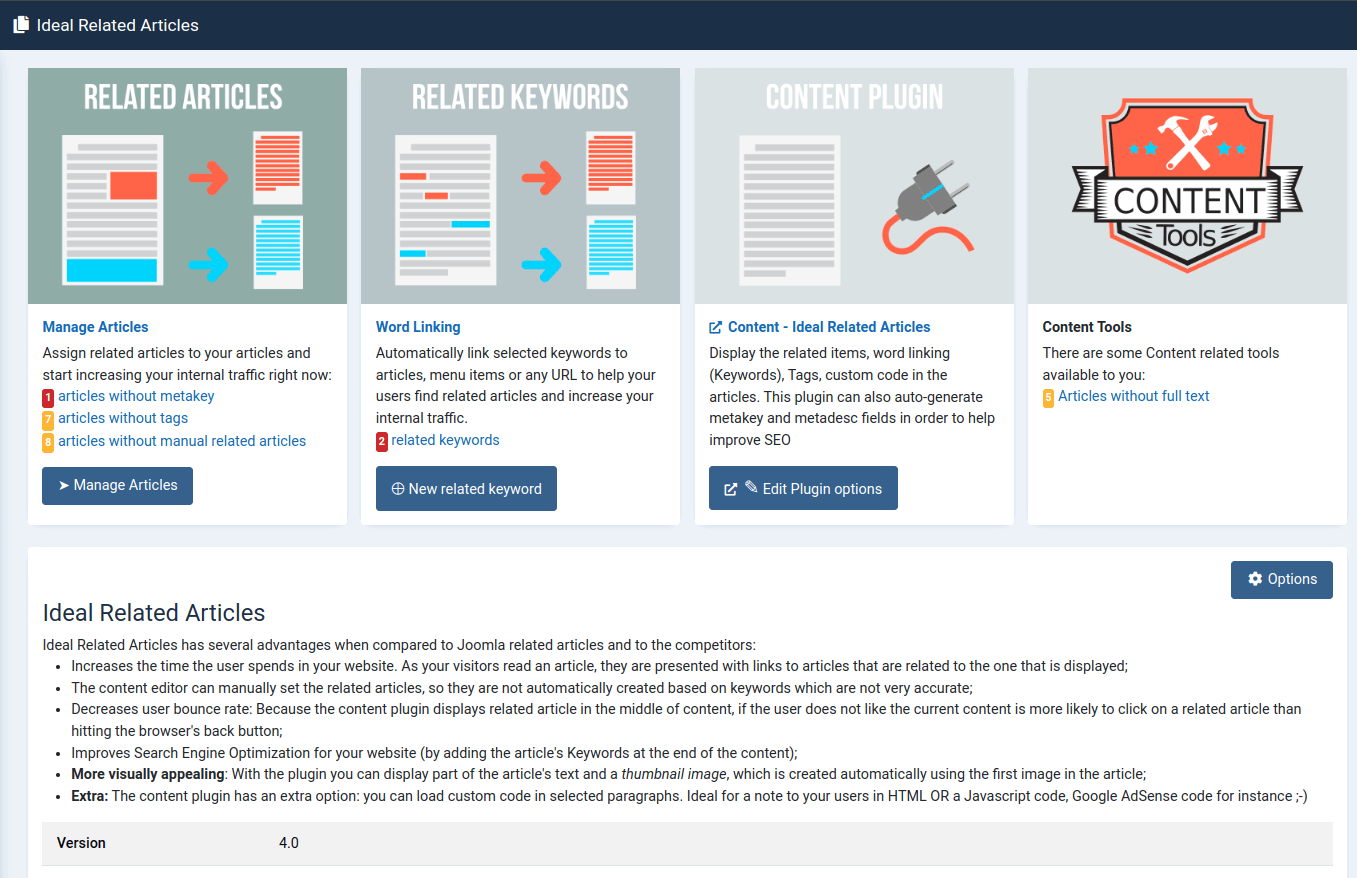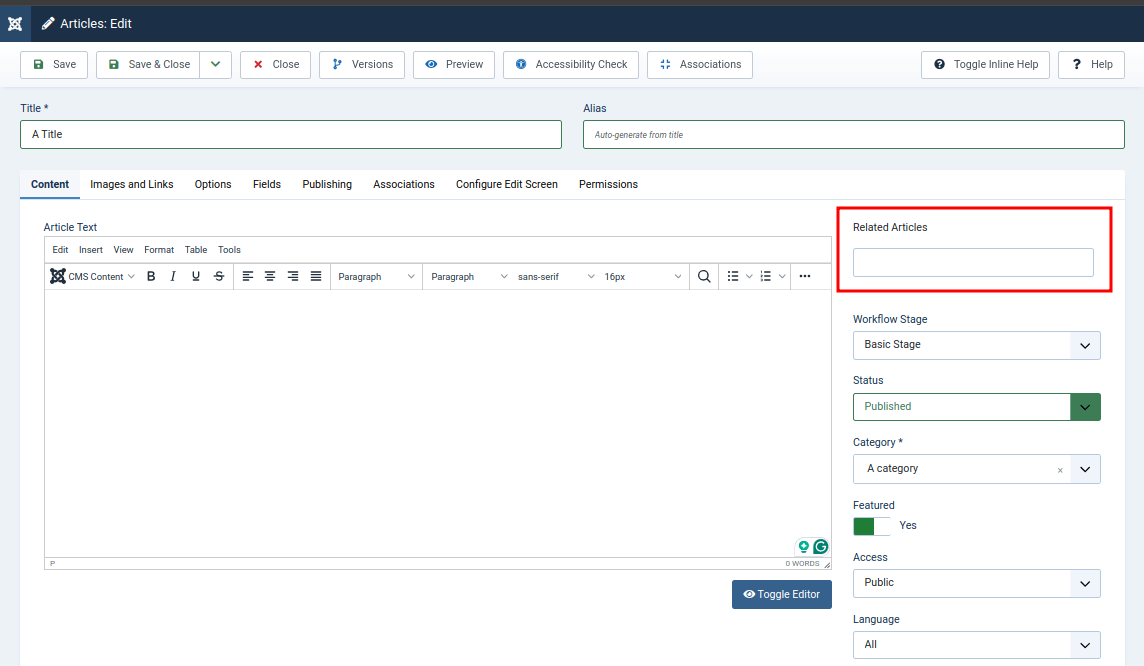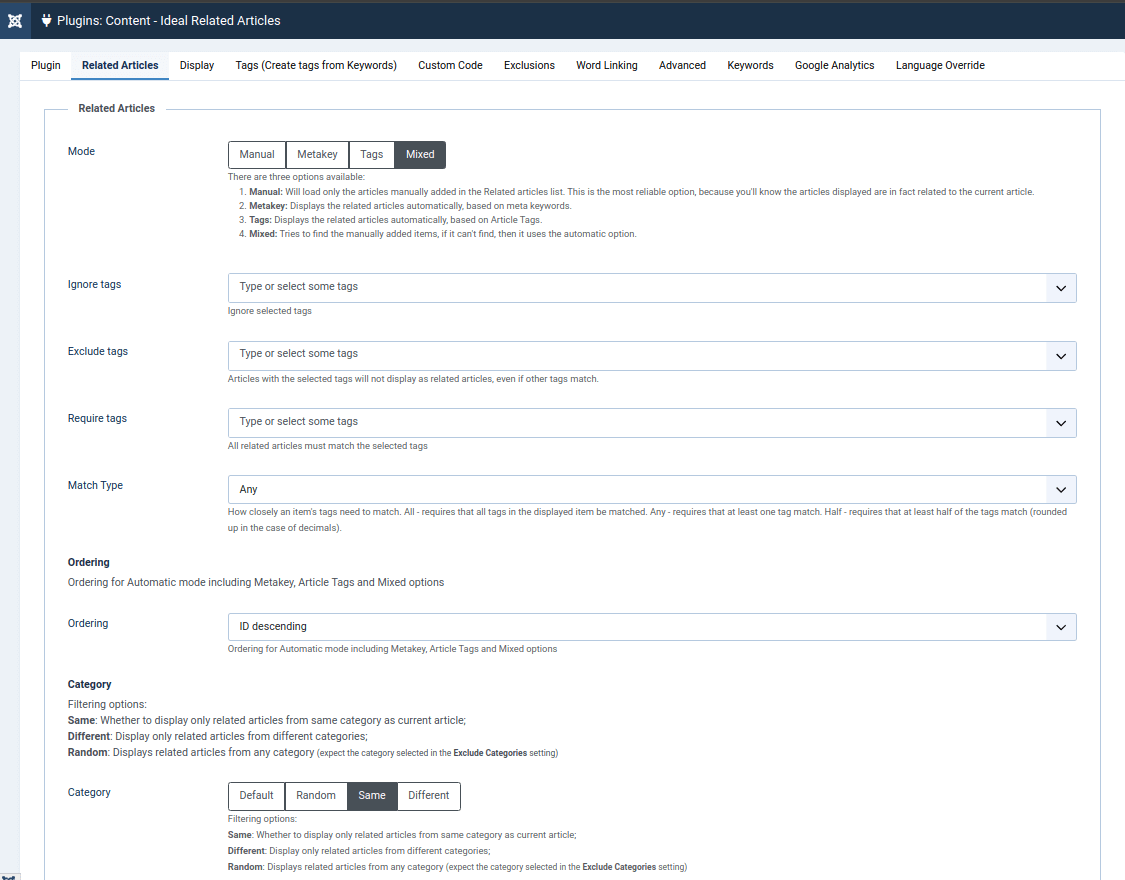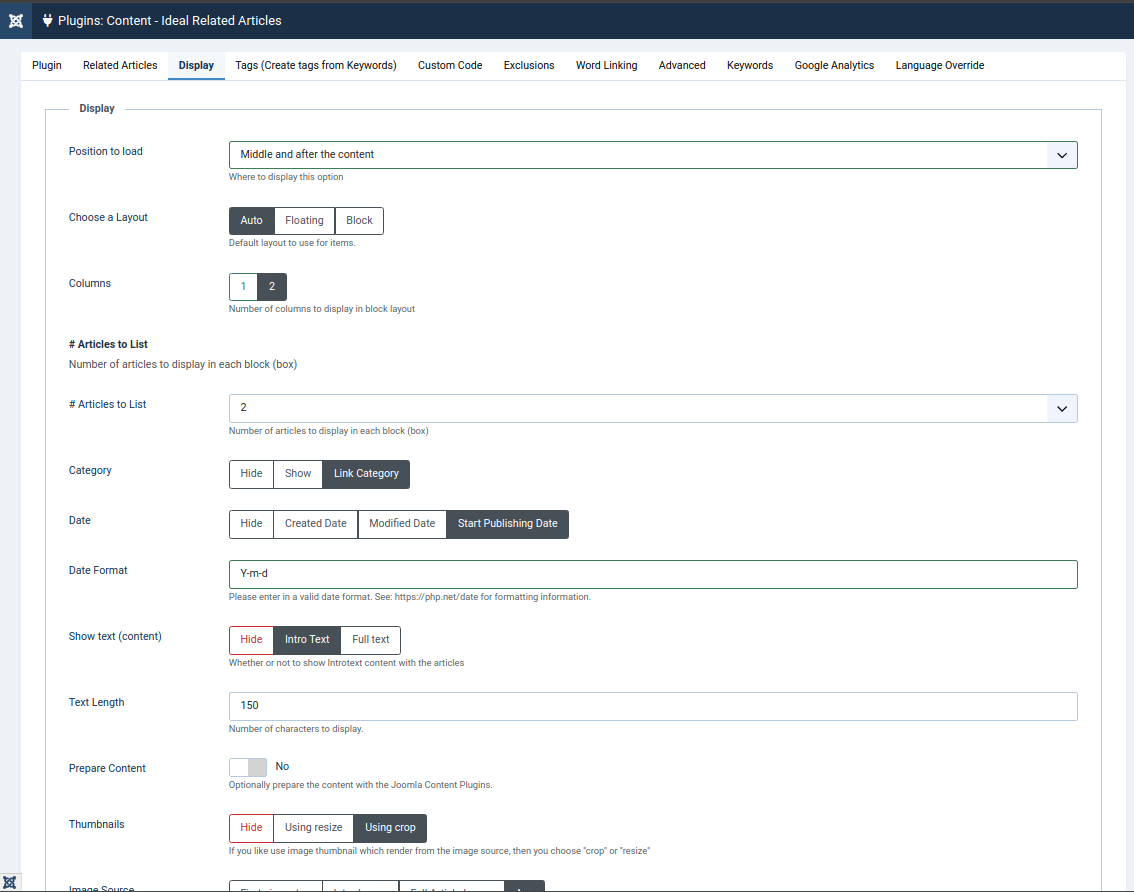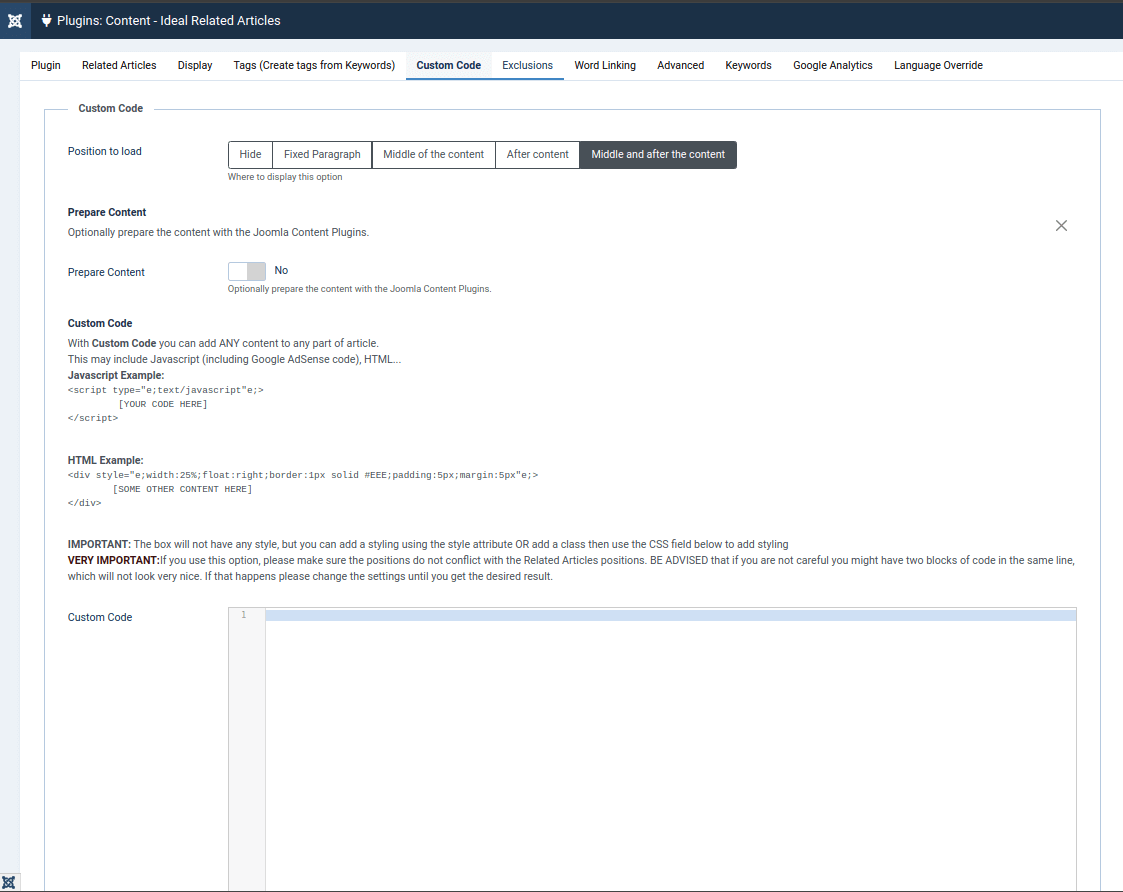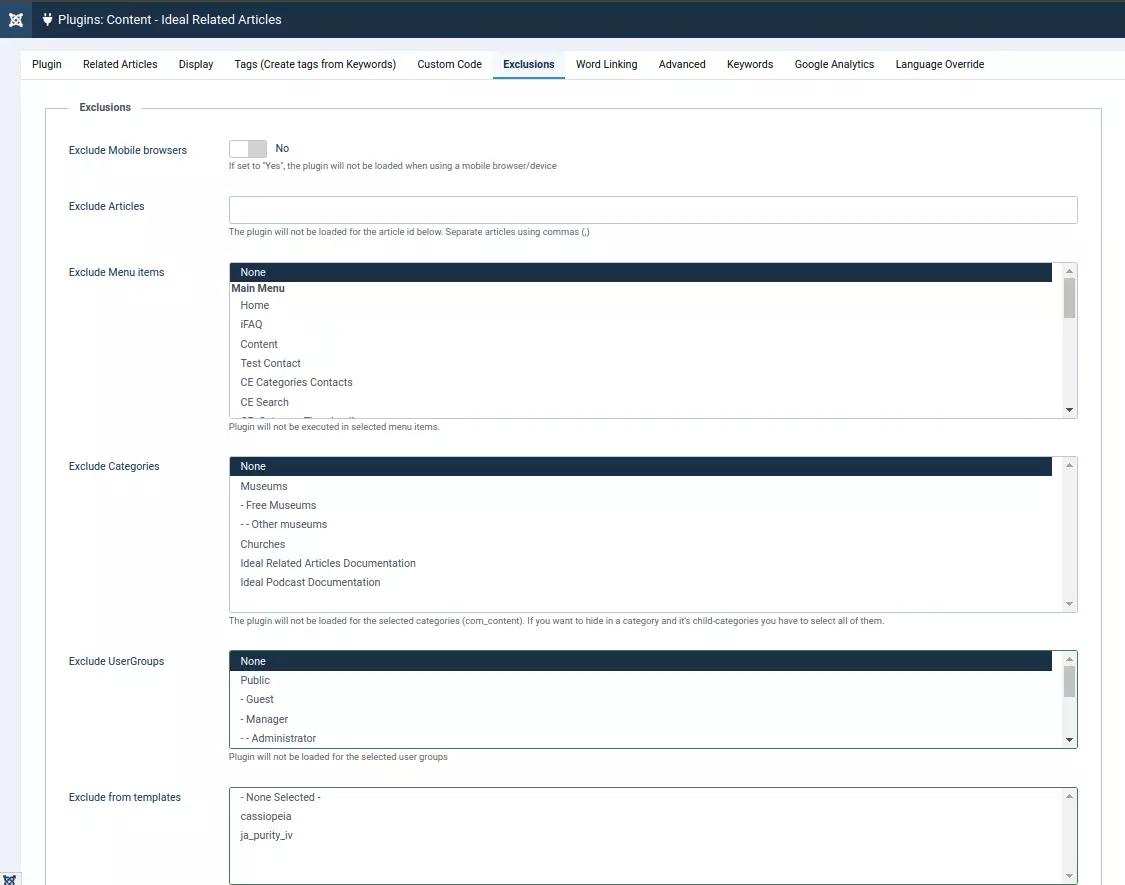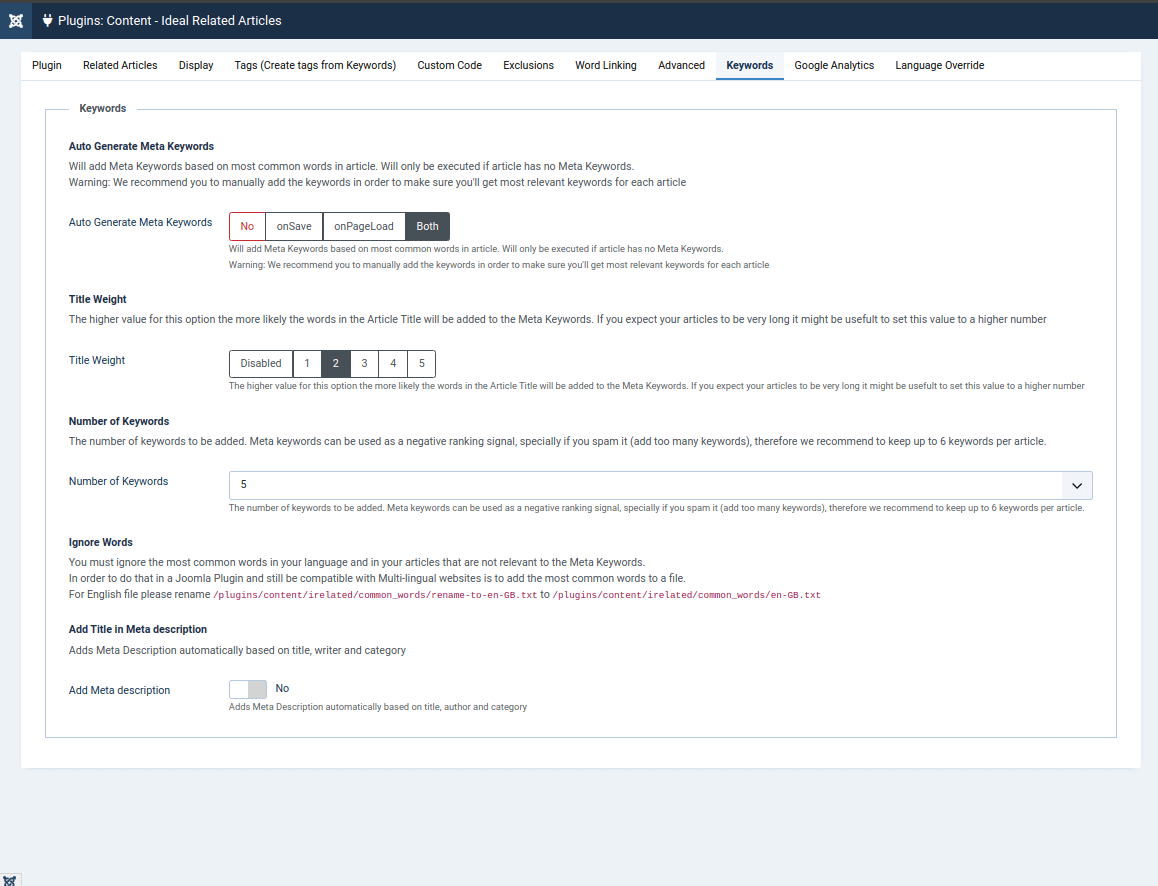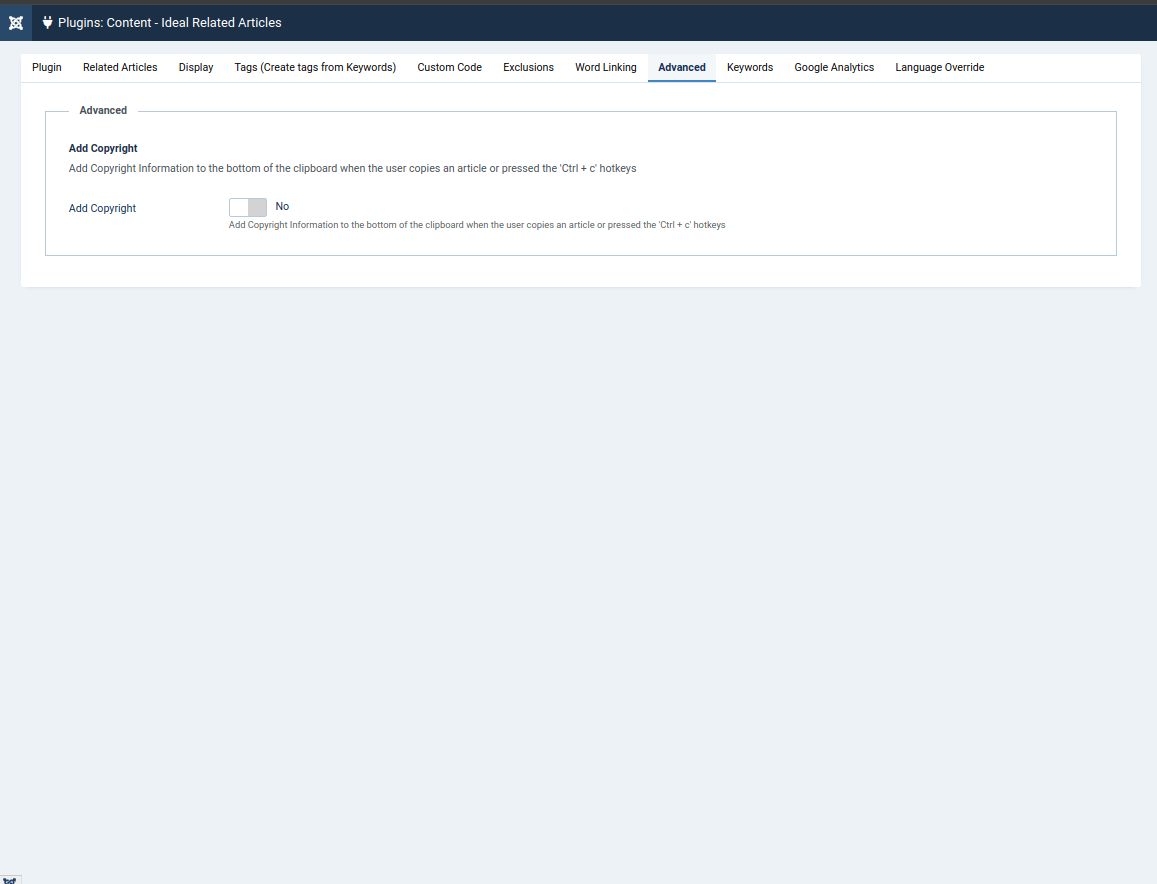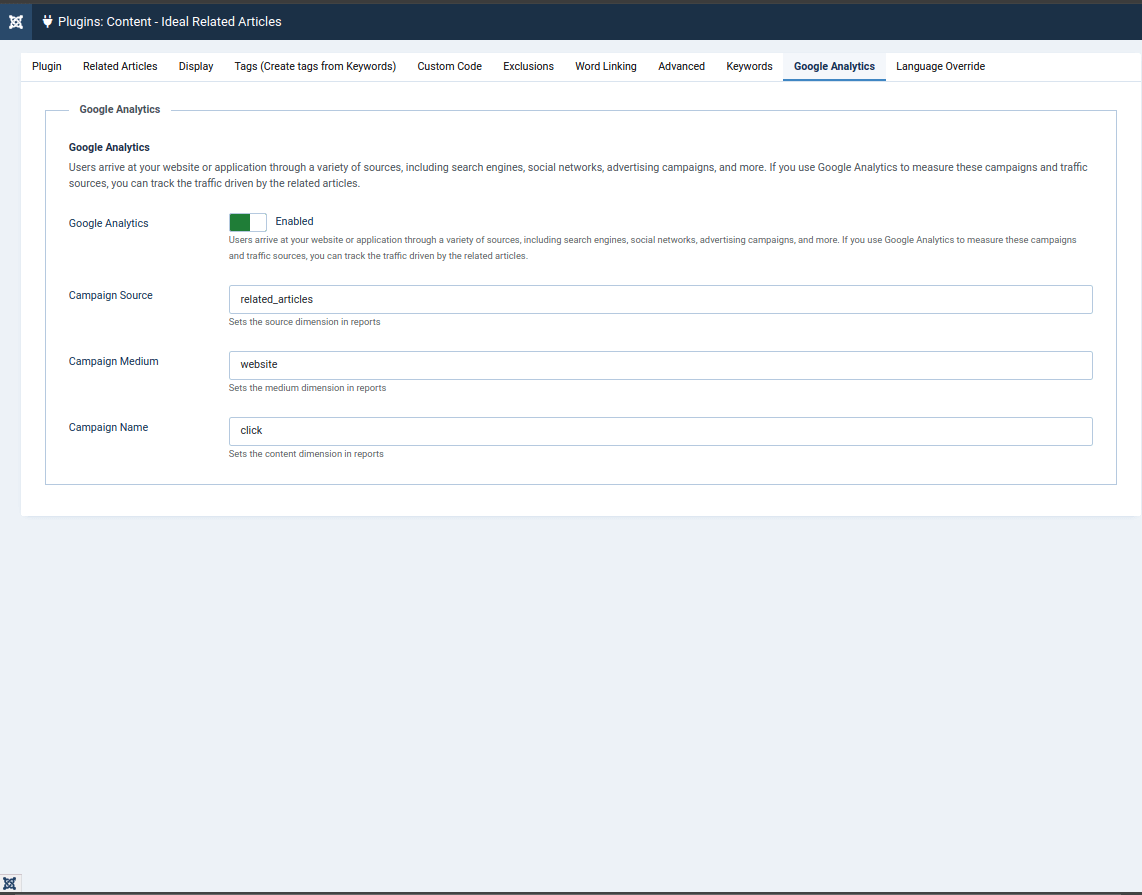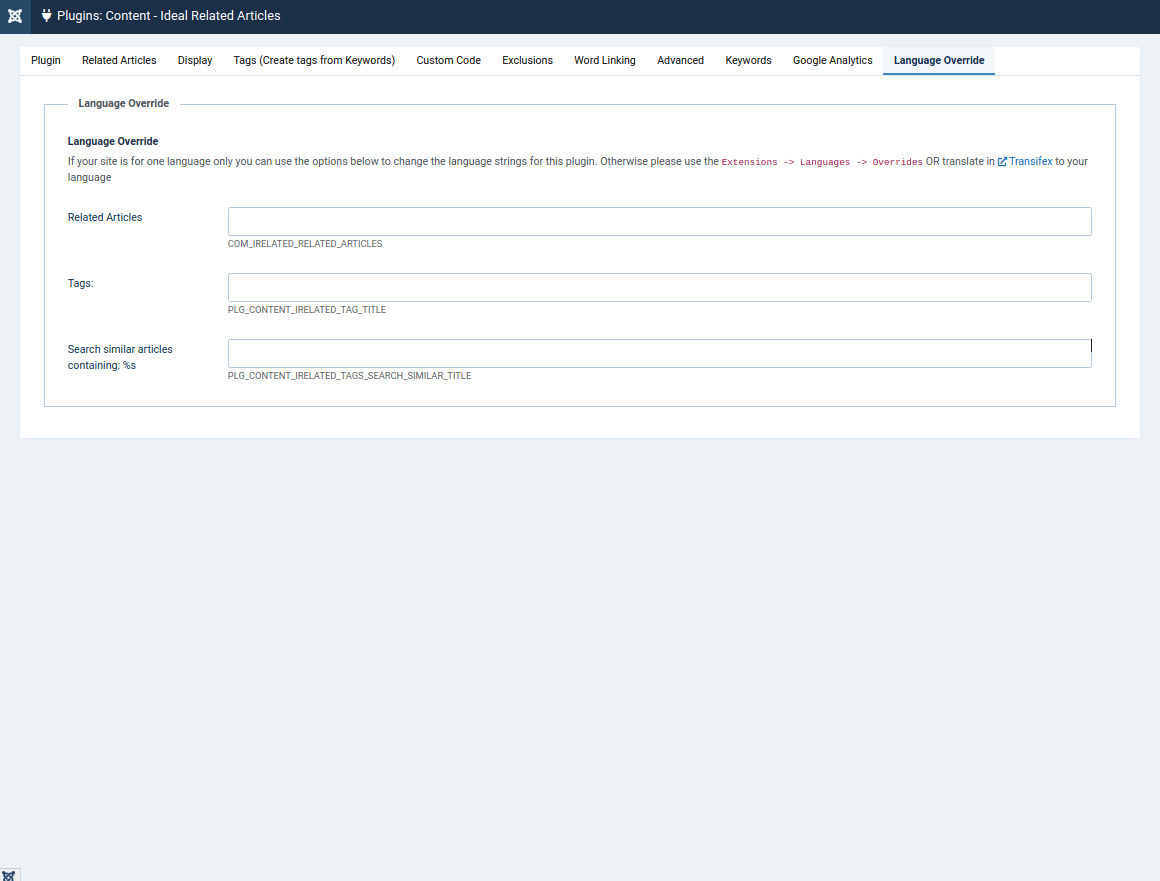Introduction
Ideal Related Articles is a versatile Joomla extension designed to display related articles within your website content. It offers multiple ways to identify related articles, customizable display options, and advanced configuration settings for seamless integration with your Joomla site.
Installation and Setup
After installing the Ideal Related Articles package, two plugins are installed: Content and System plugins. Both plugins should be enabled automatically after installation.
The System plugin is not required but adds additional features, such as a back-end interface for manually setting related articles.
Accessing the Extension
- Go to Components -> Ideal Related Articles.
- From the dashboard, you can configure the Content plugin options.
Content Plugin Configuration
Related Articles Modes
Under the Related Articles tab, you can choose one of the following modes:
- Manual: Displays only manually selected related articles. This is the most reliable method, ensuring that displayed articles are genuinely related.
- Metakey: Automatically displays related articles based on meta keywords.
- Tags: Automatically displays related articles based on article tags.
- Mixed: First tries to display manually added items; if none are found, it uses the automatic option (Metakey or Tags).
Recommendation: Use the Mixed option for the best balance between manual control and automation.
Filtering Options
Tag Filtering
- Ignore Tags: Excludes selected tags from being used to determine related articles.
- Exclude Tags: Articles with these tags are never displayed as related.
- Require Tags: All related articles must match these tags.
Category Filtering
- Same: Displays only articles from the same category as the current article.
- Different: Displays only articles from different categories (except those in excluded categories).
- Random: Displays articles from any category (except those in excluded categories).
Date Filtering
You can filter articles by a fixed date range or relative dates and set a custom number of days for the filter.
Display Settings
Under the Display tab, configure how and where related articles are shown:
Positioning Options
- Fixed Paragraphs: Specify exact paragraphs where related articles should appear.
- Repeat Every X Paragraphs: Set a frequency for displaying related article blocks.
- Middle of Content: Displays related articles in the middle of the article.
- After Content: Displays related articles after the main article content.
- Middle and After Content: Combines both middle and after content positions.
- Random: Displays related articles randomly within the content. You can set the maximum number of blocks.
Paragraph Numbers:
Specify paragraph numbers to display blocks. Negative numbers count from the end of the content. Special values include:
- middle: Places a block in the middle of the content.
- smart_middle: Distributes blocks evenly if there are enough paragraphs.
Layout Settings
- Choose a Layout: Options include Auto, Floating, and Block.
- Auto: Adapts based on article length, floating for long articles and block layout at the end.
- Columns: Set the number of columns for block layout.
- # Articles to List: Number of articles displayed per block.
Display Options
- Category: Optionally display the category label.
- Date: Show the article date (created, modified, or start publishing).
- Date Format: Specify a date format using PHP date formatting guidelines.
- Show Text: Optionally display the intro or full text content of related articles.
- Text Length: Limit the number of characters displayed. Default is 150 characters.
- Prepare Content: Run Joomla content plugins for the displayed content.
Thumbnail Settings
- Image Source: Options include the first image tag, intro image, full article image, or any image. If no image is found, set a default image.
- Image Dimensions: Set the width and height of thumbnails (default is 40x40 pixels).
Styling Options
- Block Width: Use Bootstrap grid system (e.g., 4 columns for 33% width).
- Container Class: Add custom classes, e.g., Bootstrap classes, or use "no-styling" for a plain block.
- Block Class: Custom classes for individual blocks, supporting multiple classes.
Advanced Link Settings
Customize link attributes with XHTML-style properties (e.g., rel="nofollow").
Custom Code Configuration
You can inject custom code (e.g., JavaScript, HTML) into content blocks at designated positions. For example:
<script type="text/javascript"> // Your custom script here </script> Or use HTML:
<div style="width:25%; float:right; border:1px solid #EEE; padding:5px; margin:5px;"> <!-- Additional content here --> </div> Ensure custom code does not conflict with related articles positions.
Additional Code Block
A second custom code block is available if needed. If this is left empty, the first block is used instead.
CSS Code
Add CSS styles directly in the plugin options without using <style> tags.
Exclusions
Exclusion Settings
- Exclude Mobile Browsers: Disable the plugin for mobile devices.
- Exclude Articles: Exclude specific articles by ID (separated by commas).
- Exclude Menu Items: Exclude specific menu items from loading related articles.
- Exclude Categories: Prevent related articles from loading in specific categories.
- Exclude UserGroups: Exclude articles based on the viewer’s user group.
- Exclude Templates: Exclude specific templates from displaying related articles.
- Block IPs: Block specific IPs, useful for excluding admin views.
Run Once Option
Prevents multiple executions of the plugin, which can occur if other extensions run content plugins multiple times.
Word Linking
Word Linking Settings
- Limit Rules: Set a limit on how many Word Linking rules load per page.
- Max Replacements: Limit the number of word replacements to prevent excessive linking.
- Link Headings: Control whether links are added to heading tags like
h1,h2, etc.
Advanced Tab
Add Copyright Information
Automatically append copyright information when users copy content using "Ctrl + C."
Keywords Tab
Auto-Generate Meta Keywords
Automatically generate meta keywords based on the most common words in the article, if none are set manually. Customize keyword generation by setting:
- Title Weight: Prioritize words in the title for longer articles.
- Number of Keywords: Limit to 6 keywords to avoid keyword stuffing penalties.
Ignore Common Words
Specify common words to ignore in each language by editing the appropriate file (e.g., en-GB.txt for English).
Meta Description
Auto-generate meta descriptions using the article title, author, and category.
Google Analytics Integration
Track traffic driven by related articles using Google Analytics. Set parameters like:
- Campaign Source: Identify the traffic source.
- Campaign Medium: Specify the medium (e.g., email, social).
- Campaign Name: Track specific campaigns.
Language Overrides
If your site uses a single language, you can override language strings directly in the plugin options. For multi-language sites, use Joomla’s language override features.
Override examples:
- Related Articles Label:
COM_IRELATED_RELATED_ARTICLES - Tags Label:
PLG_CONTENT_IRELATED_TAG_TITLE - Search Similar:
PLG_CONTENT_IRELATED_TAGS_SEARCH_SIMILAR_TITLE
Conclusion
Ideal Related Articles provides robust options for managing and displaying related content on your Joomla site. By configuring modes, filters, display settings, and advanced options, you can achieve a tailored solution that enhances user engagement and SEO.
